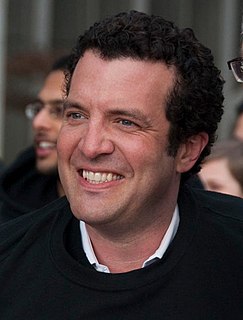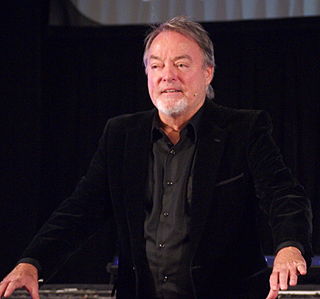A Quote by Dan Quayle
If you listen to the news, read the news, you'd think we were still in a recession. Well, we're not in a recession. We've had growth; people need to know that. They need to be more upbeat, more positive.
Related Quotes
The weakness of cable news is that it chases its audience around. Your audience wants fast-paced, popular news. It needs real news. Cable news changes its stripes based on audience reaction. Viewers are reacting well to breaking news? You probably do more breaking news than you need to. The struggle is building something so that people will come to you, as opposed to constantly changing what you are because you're unsure of where the audience is.
We don't need no more rappers, we don't need no more basketball players, no more football players. We need more thinkers. We need more scientists. We need more managers. We need more mathematicians. We need more teachers. We need more people who care; you know what I'm saying? We need more women, mothers, fathers, we need more of that, we don't need any more entertainers
I'm confused about who the news belongs to. I always have it in my head that if your name's in the news, then the news should be paying you. Because it's your news and they're taking it and selling it as their product. ...If people didn't give the news their news, and if everybody kept their news to themselves, the news wouldn't have any news.
I think Welfare Reform did more harm than good, but one piece of good it did was it changed the attitudes of Americans. If we look at voter surveys even before the recession, the idea that people are poor because they're lazy was much stronger in the early '90s than it was even before the recession. Now with the recession, everybody knows somebody who is poor through no fault of their own. So voter attitudes are more favorable than they've been since the '60s.
I realized that the artists who managed to fight through this recession have a better shot at longevity than most. The recession was a test of your resolve and passion. I think as we come out of these rough times we will be more adept at survival and will have gained the skills necessary to make a long fruitful artistic career. There will still be those that fade away but we are more likely to grow and bend with the times and prosper.
I've had very little negative pushback. I think people in the Senate know that I have believed, for a number of years, and have been outspoken that we need to listen to what the American people are telling us, and we need to focus more on the well-being of people who make lower wages, $50,000 and below.
"The ultimate recession": a recession caused not by failed regulation and bankers' greed, but by very high oil prices, food and water shortages, disappearing forests, accelerating climate change, forced migration and mass civil disruption...The long and the short of it, unfortunately, is this: more politicians still believe that economic recovery depends on continuing to live beyond our means (financially and ecologically) than on learning to live within our means. And that's why the ultimate "Perfect Storm" recession still looms on the horizon
When you're in the depths of a recession, that isn't the time when people want to challenge the system, they're too busy trying to survive. It's when they're told we're coming out of a recession, growth is returning, and they're not seeing the benefits of it, or they're not seeing them quick enough.


































